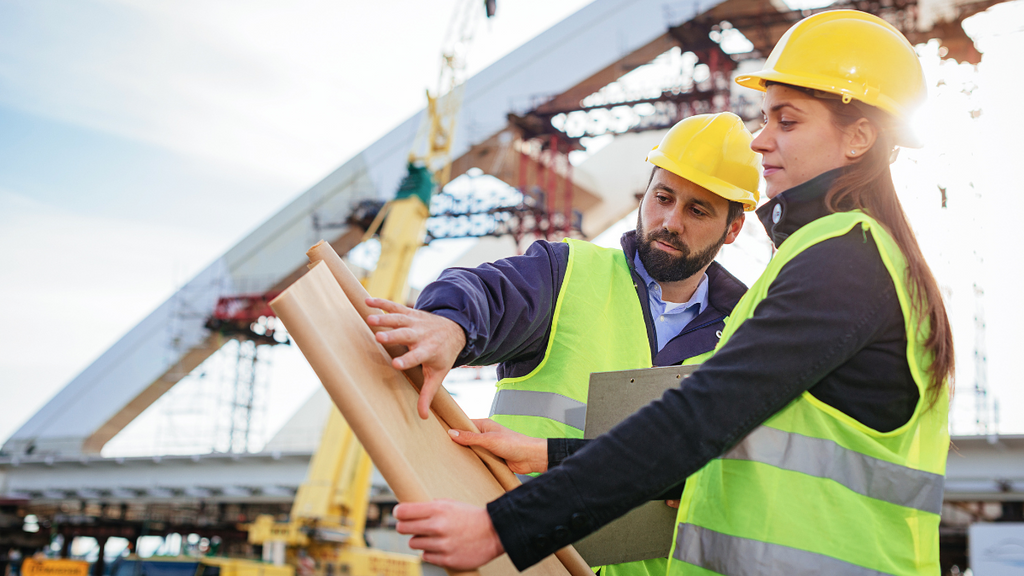The smart Trick of Geotheta That Nobody is Discussing

A geotechnical designer is a specialized civil designer that concentrates on the behavior of soil, rock, and various other products found under the Earth's surface area. They use scientific concepts and design strategies to evaluate the residential or commercial properties and actions of these products to support the safe and effective layout, building and construction, and upkeep of facilities tasks.
They carry out website investigations, accumulate examples, do research laboratory examinations, and assess data to assess the viability of the ground for building and construction projects - Consulting Engineer. Based upon their searchings for, geotechnical engineers supply recommendations for foundation layout, slope stability, keeping frameworks, and reduction of geotechnical threats. They work together with other professionals, such as designers, structural engineers, and building and construction teams, to guarantee that geotechnical factors to consider are incorporated right into the overall job style and application
By evaluating the actions and properties of dirt and rock, they can determine potential geotechnical hazards such as landslides, dirt negotiation, or slope instability. Their proficiency aids prevent failings or crashes that can threaten lives and building. Right here are some thorough tasks and duties of a geotechnical designer: Site Examination: Geotechnical engineers conduct site investigations to collect data on subsurface problems.
They analyze the data to recognize the residential or commercial properties and habits of the soil and rock, including their toughness, leaks in the structure, compaction features, and groundwater problems. Geotechnical Evaluation and Style: Geotechnical engineers analyze the information accumulated throughout site investigations to examine the stability and suitability of the website for building and construction projects. They perform geotechnical estimations and modeling to review variables such as birthing capacity, settlement, incline stability, lateral earth pressures, and groundwater circulation.
8 Simple Techniques For Geotheta
Foundation Design: Geotechnical engineers play an essential function in developing structures that can safely sustain the desired structure. They examine the dirt conditions and load demands to figure out the appropriate foundation type, such as superficial structures (e.g., footings), deep structures (e.g (https://filesharingtalk.com/members/599923-geotheta)., heaps), or specialized strategies like soil enhancement. They think about elements such as settlement restrictions, bearing ability, and soil-structure interaction to create ideal foundation designs
They review building plans, monitor site tasks, and carry out field inspections to verify that the style suggestions are adhered to. If unpredicted geotechnical problems emerge, they analyze the circumstance and supply suggestions for removal or adjustments to the style. Risk Analysis and Mitigation: Geotechnical designers evaluate geotechnical dangers and risks related to the job site, such as landslides, liquefaction, or dirt erosion.

Collaboration and Interaction: Geotechnical engineers work carefully with other professionals involved in a project, such as designers, architectural designers, and building and construction teams. Reliable interaction and collaboration are important to incorporate geotechnical considerations right into the general project layout and building process. Geotechnical engineers supply technical proficiency, response questions, and guarantee that geotechnical needs are fulfilled.
Geotheta Things To Know Before You Get This
Here are some types of geotechnical engineers: Foundation Designer: Foundation engineers concentrate on developing and assessing foundations for structures. They analyze the dirt conditions, lots demands, and website qualities to establish one of the most suitable structure kind and design, such as shallow structures, deep foundations, or specialized methods like heap foundations.
They evaluate the factors influencing slope security, such as soil residential properties, groundwater problems, and slope geometry, and create methods to stop incline failings and mitigate dangers. Quake Designer: Quake designers concentrate on examining and making structures to endure seismic forces. They evaluate the seismic danger of a website, examine soil liquefaction possibility, and establish seismic layout standards to guarantee the security and resilience of frameworks throughout earthquakes.
They perform field screening, gather samples, and evaluate the collected information to identify the soil properties, geologic developments, and groundwater conditions at a site. Geotechnical Instrumentation Designer: Geotechnical instrumentation designers concentrate on monitoring and gauging the behavior of soil, rock, and structures. They install and maintain instrumentation systems that check aspects such as soil negotiation, groundwater degrees, incline activities, and structural displacements to analyze efficiency and supply early cautions of prospective issues.
The 20-Second Trick For Geotheta
They tend to be investigative individuals, which suggests they're intellectual, reflective, and curious. They are interested, systematic, rational, analytical, and rational. A few of them are also social, indicating they're kind, generous, cooperative, person, caring, helpful, understanding, sensible, and friendly. Does this seem like you? Take our complimentary occupation examination to locate out if geotechnical engineer is just one of your leading career matches.
In the office environment, geotechnical designers make use of specialized software tools to do estimations, develop styles, and examine data. They prepare records, testimonial job specs, interact with customers and staff member, and coordinate task activities. The workplace setting offers a favorable atmosphere for research study, analysis, and cooperation with various other experts associated with the job.
Geotheta Things To Know Before You Get This
They often visit task sites to carry out site examinations, examine geotechnical problems, and collect data for evaluation. These brows through include taking a trip to various places, in some cases in remote or tough terrains. Geotechnical engineers may perform dirt sampling, conduct tests, and monitor building and construction activities to guarantee that the geotechnical facets of the job are being executed appropriately.
Geotechnical engineers likewise function in specialized geotechnical research laboratories. Geotechnical laboratory designers function thoroughly in these environments, dealing with testing devices, running tools, and videotaping information.
Comments on “Getting My Geotheta To Work”